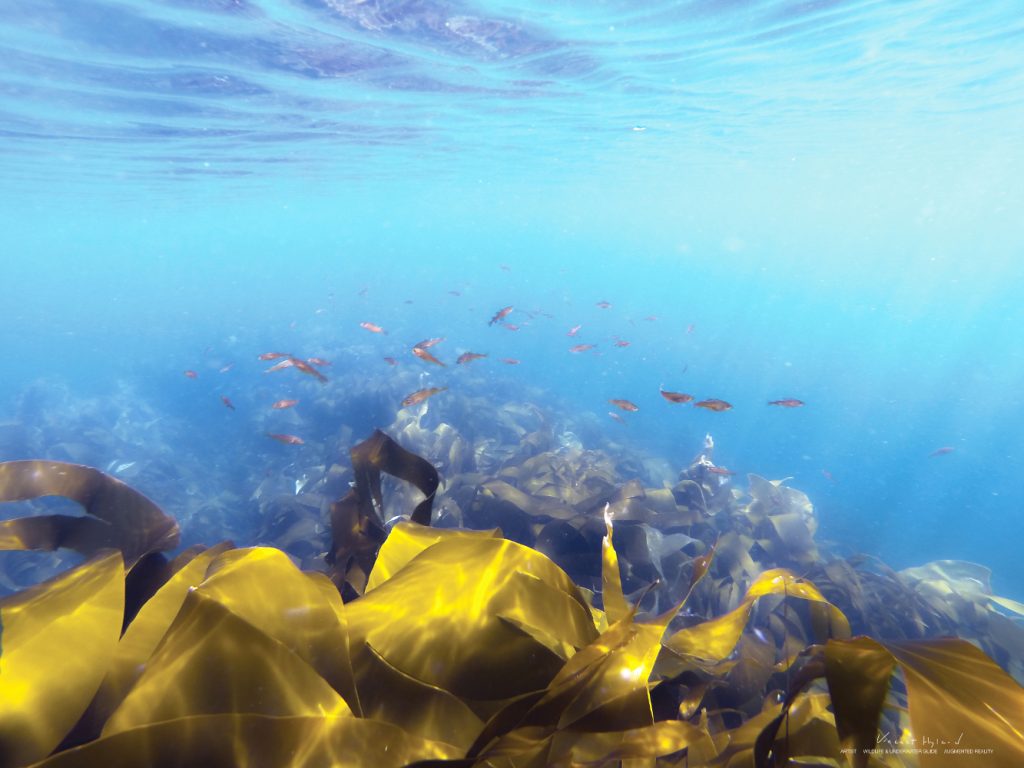Kelp cutting at height to allow regrowth may not be ‘technically feasible’

May 16th, 2019
It may not be “technically feasible” to ensure that kelp harvested by mechanical means in Bantry Bay will be cut at a height to allow regrowth of the keystone species, the High Court heard today.
BioAtlantis Aquamarine Ltd, a Tralee-based biotechnology group, is seeking to harvest kelp – a keystone marine species – in 1,800 acres of the Bay.
The Department of Planning granted a licence to BioAtlantis in 2014 that allows for ten-year harvesting of kelp seaweed by mechanical means, the first of its kind in Ireland.
The High Court is today hearing injunction proceedings brought by a Mr John Casey who is seeking to prevent any harvesting from taking place prior to BioAtlantis applying for and receiving planning permission.
Mr Casey argues that the proposed harvesting amounts to a change of use of the marine environment and as such BioAtlantis requires planning permission. He has also brought Judicial Review proceedings on the granting of the harvesting licence by the Department.
James Delvin SC, counsel for Mr Casey, told Ms Justice Deirdre Murphy that his client fears that the harvesting will have consequences for the marine environment and the numerous species that rely on the kelp canopy.
Kelp forests – often described as the rainforest of the sea – provide food, shelter, habitats, and nursery for numerous marine and bird species, as well as acting as an important carbon sink.

‘May not be technically feasible’
Kelp is made up of three parts, the holdfast that acts like a root anchoring the kelp to the sea floor, the stipe, a stalk-like structure that supports the fronds, similar to long leaves, absorbing nutrients and allowing for photosynthesis.
BioAtlantis state that the winch aboard its catamaran Atlantis Explorer is designed to harvest kelp without contact with the seabed, using moderate suction to draw the kelp into a cutter where it will be cut and pumped into the vessel. The seaweed will be cut a minimum of 25cm from its holdfast.
However, in an affidavit read before the court from Coastwatch Europe coordinator Karin Dubsky, the Trinity College Dublin marine expert states that BioAtlantis itself recognises that it may not be technically feasible to restrict cutting to this limit.
The admission, Ms Dubsky states, came in correspondence from the company’s CEO John T. O’Sullivan to the Broadcast Authority of Ireland (BAI) over a complaint about a February 2017 EcoEye episode on RTE 1 that discussed the proposed harvesting scheme.
In a summary of Mr O’Sullivan’s complaint, the BAI states that in his first complaint to the authority, Mr O’Sullivan agrees with Karin Dubsky – who appeared on the episode – regarding the “preferred cutting height of kelp” of a minimum of 25cm from its holdfast.
The BAI reports, however, that, while this is a standard that his company aspires to, Mr O’Sullivan said that “this may not be technically feasible”.
If kelp is to regrow, Ms Dubsky’s affidavit states that it needs to be cut more than 25cm above the holdfast in order to ensure that the plant can regrow.
If the kelp is cut at the wrong height, it dies and this poses a threat to a kelp forest, the biodiversity it supports and the ecosystem services it provides, Ms Dubsky’s affidavit states.
Ms Dubsky states in her affidavit that the loss of the kelp canopy could also allow for the growth of invasive species.
The case continues tomorrow.
[x_author title=”About the Author”]







